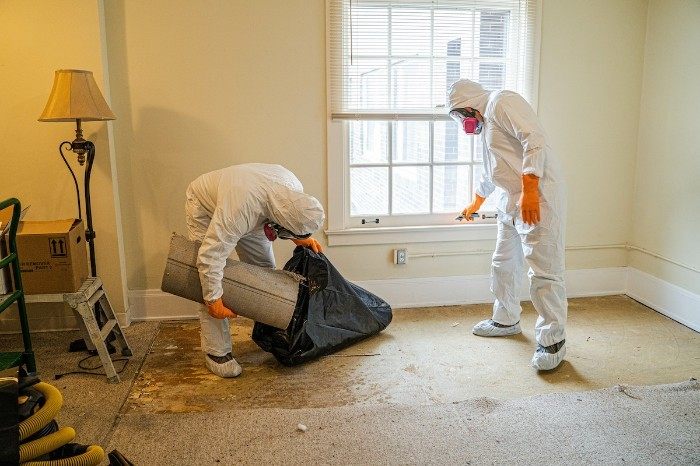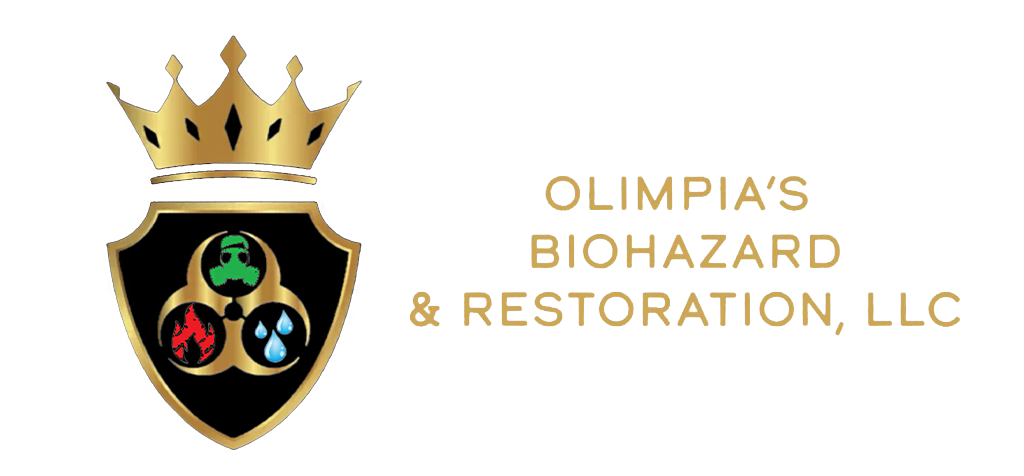In the aftermath of a crime, the focus naturally shifts to investigations, legal proceedings, and coping with the emotional trauma. However, an aspect often overlooked is the immediate need for crime scene cleanup. This crucial step not only plays a pivotal role in restoring the affected area but also has far-reaching implications for the physical and mental well-being of those involved. In this blog, Olympia’s Biohazard and Restoration LLC will assist you in enter the world of the reasons why immediate crime scene cleanup is indispensable, exploring the implications for public health, safety, and the delicate process of emotional recovery.
The Silent Dangers Lurking: Biohazards and Pathogens
One of the foremost reasons for prompt crime scene cleanup is the presence of biohazards and pathogens. Crime scenes are often contaminated with blood, bodily fluids, and other potentially infectious materials. The longer these substances linger, the higher the risk of exposure to harmful microorganisms. Bloodborne pathogens, such as hepatitis B and HIV, can survive outside the body for extended periods, posing a severe threat to anyone coming into contact with the scene.
Immediate Cleanup Protocols:
Executing immediate cleanup, trained professionals adhere to stringent protocols, incorporating specialized cleaning agents and donning personal protective equipment (PPE). This meticulous approach guarantees a comprehensive and secure removal of biohazards, mitigating the risk of infection for both the cleanup crew and future occupants of the space. Reading about how crime scene cleanups for businesses protect employees and customers may help you clear your vision. By prioritizing safety measures, these professionals exemplify a commitment to not only restoring the physical environment but safeguarding the health and well-being of all involved parties.


Educating the Public:
Public education is a pivotal component of the cleanup process. Timely and transparent communication regarding the potential risks linked to lingering biohazards serves as a beacon of awareness within the community. This proactive approach empowers individuals with knowledge, enabling them to take necessary precautions and navigate their surroundings with heightened vigilance. By fostering a culture of awareness, immediate cleanup not only addresses the physical aftermath of a crime but also actively involves the community in its collective safety.
Preserving Mental Well-being: A Timely Intervention
The psychological toll of a crime scene extends far beyond its physical aftermath. The profound impact on the mental well-being of individuals who have witnessed or experienced a traumatic event cannot be overstated. Lingering reminders, such as bloodstains or other remnants, serve as constant triggers, intensifying the trauma and impeding the natural healing process. Recognizing this, immediate crime scene cleanup becomes not just a physical necessity but a compassionate intervention aimed at alleviating the emotional burden on those affected.
Professional Counseling Services:
In tandem with immediate cleanup efforts, providing access to professional counseling services is paramount. This dual strategy not only addresses the physical remnants of the crime scene but also attends to the emotional well-being of those affected. Having a quick look at how crime scene cleaning in Portland’s schools looks like, may give you a better idea on availing counseling services for people at the scene. By offering a comprehensive support system, including both cleanup and counseling services, communities and individuals can foster a more robust and holistic approach to recovery, aiding in the intricate process of healing after a traumatic event.
Customized Cleanup Plans:
Crime scene cleanup professionals, cognizant of the distinct psychological challenges linked to various crimes, adeptly formulate personalized cleanup plans. These specialized approaches may encompass additional measures designed to address specific sensitivities and concerns, fostering a more nuanced and empathetic response to the cleanup process. By recognizing the individualized nature of trauma, these professionals demonstrate a commitment to not only physical restoration but also to the emotional well-being of those navigating the aftermath of diverse and challenging situations.
Legal and Financial Ramifications: Navigating the Aftermath
Procrastinating crime scene cleanup can result in severe legal and financial ramifications for property owners. Authorities may declare a property uninhabitable until proper cleanup occurs, causing substantial disruptions and financial strain. Moreover, delayed action may render property owners liable for any harm resulting from the failure to promptly address the aftermath of a crime, underscoring the imperative of immediate cleanup as a responsible and preventive measure.
Insurance Compliance:
The importance of immediate cleanup is underscored by its inclusion as a requirement in insurance policies. Property owners who promptly enlist professional cleanup services not only prioritize safety but also showcase compliance with insurance regulations. This proactive approach not only facilitates a smoother claims process but also serves as evidence of responsible property management. By swiftly addressing the aftermath of a crime, property owners can potentially minimize financial burdens associated with extensive property restoration, aligning with both regulatory expectations and prudent risk management practices.


Legal Consultation Services:
Crime scene cleanup professionals, cognizant of potential legal implications, often collaborate with legal experts to offer consultation services. This proactive engagement ensures that property owners are well-informed about their rights and responsibilities in the aftermath of a crime. By providing valuable legal insights, these professionals empower property owners to navigate the legal landscape with confidence, fostering a proactive and informed approach to addressing the complexities associated with crime scene cleanup.
Community Impact: Restoring Trust and Normalcy
The ripple effect of a crime extends far beyond individual victims and property owners, permeating the entire community. Swift crime scene cleanup plays a pivotal role in reinstating a sense of normalcy and security within a neighborhood. Eradicating visible reminders of the crime, such as stained sidewalks or boarded-up properties, is paramount to dispelling the lingering atmosphere of fear and distrust, fostering a community-wide effort towards recovery and resilience.
Community Engagement Programs:
Crime scene cleanup companies, recognizing their role beyond physical restoration, can proactively initiate community engagement programs. By involving residents in the restoration process, these programs foster a sense of collective responsibility and empowerment within the community. Encouraging active participation, community members become integral contributors to the recovery and rebuilding efforts, creating a united front against the impacts of crime and reinforcing the resilience of the neighborhood.
Public Awareness Campaigns:
Establishing public awareness campaigns is crucial to underscore the significance of immediate crime scene cleanup. Beyond highlighting the urgency of prompt action, these campaigns play a pivotal role in dispelling misconceptions and combating the stigma associated with crime scenes. By fostering a more supportive and understanding community environment, such initiatives contribute to breaking down barriers and promoting empathy, essential elements in the collective effort to address the aftermath of crimes with sensitivity and compassion.
Environmental Considerations: Beyond Aesthetics
Beyond addressing immediate biohazards, crime scene cleanup must also consider environmental factors often overlooked. Blood and bodily fluids, if not thoroughly addressed, can seep into surfaces, presenting long-term environmental risks. Recognizing the potential hazards associated with these substances, comprehensive cleanup protocols include measures to prevent environmental contamination. By ensuring proper disposal and decontamination, crime scene cleanup professionals contribute to both public health and environmental preservation, underscoring the broader responsibility of safeguarding our surroundings.
Sustainable Cleanup Practices:
A notable trend in the industry is the growing adoption of sustainable practices by crime scene cleanup professionals. Knowing about what to expect from them, may give you assistance in this task, in Portland. Utilizing environmentally friendly cleaning agents and disposal methods, this commitment aligns seamlessly with broader environmental initiatives. By showcasing a responsible approach to both public health and the planet, these professionals exemplify how conscientious cleanup practices can contribute to a healthier, more sustainable future for communities and the environment alike.
Long-term Environmental Impact Assessments:
Supplementing immediate cleanup efforts, the implementation of long-term environmental impact assessments is essential. This proactive approach ensures the identification and addressing of any potential hazards, providing a comprehensive solution to the aftermath of a crime. By safeguarding both the environment and public health, these assessments exemplify a commitment to sustained well-being, offering a holistic strategy that extends beyond the immediate cleanup phase.
Conclusion
In the aftermath of a crime, the road to recovery is multifaceted, requiring a holistic approach that encompasses physical, mental, legal, and community well-being. Immediate crime scene cleanup emerges as a linchpin in this process, offering a swift and effective response to potential dangers while fostering an environment conducive to healing.
It is crucial for individuals, property owners, and communities to recognize the importance of this often-overlooked aspect of the aftermath. There are many crime scene cleanup service providers in Portland that may do the job for you. By prioritizing immediate cleanup, we not only mitigate the risk of disease transmission and legal repercussions but also contribute to the restoration of a sense of security and normalcy, both on an individual and community level. In the intricate tapestry of recovery, immediate crime scene cleanup is a thread that binds together the various elements, weaving a path toward resilience and renewal.
FAQ’s
What is the crime scene cleanup process?
The crime scene cleanup process involves assessing biohazards, employing specialized cleaning agents and PPE, and ensuring thorough decontamination. Trained professionals adhere to strict protocols to restore the affected area safely and efficiently.
What cleaners do crime scene cleaners use?
Crime scene cleaners typically use specialized cleaning agents, including hospital-grade disinfectants and enzymatic cleaners, designed to effectively sanitize and eliminate biohazards. These products are crucial for ensuring a thorough and safe cleanup process.
What is the process of trauma cleaning?
Trauma cleaning involves assessing, cleaning, and sanitizing spaces affected by traumatic events. Trained professionals use specialized equipment and cleaning agents to ensure thorough decontamination, addressing both physical and emotional aspects of the aftermath.
When can you clean a crime scene?
A crime scene can be cleaned as soon as law enforcement releases the scene, which typically occurs after their investigation. Immediate cleanup is crucial to mitigate health risks, minimize legal complications, and support the emotional recovery of those affected.
Where do crime scene cleaners make the most money?
Crime scene cleaners tend to earn higher salaries in metropolitan areas with a higher cost of living and increased demand for specialized cleaning services due to a higher frequency of incidents. Cities with a dense population and a thriving economy often offer the most lucrative opportunities for crime scene cleaners.
